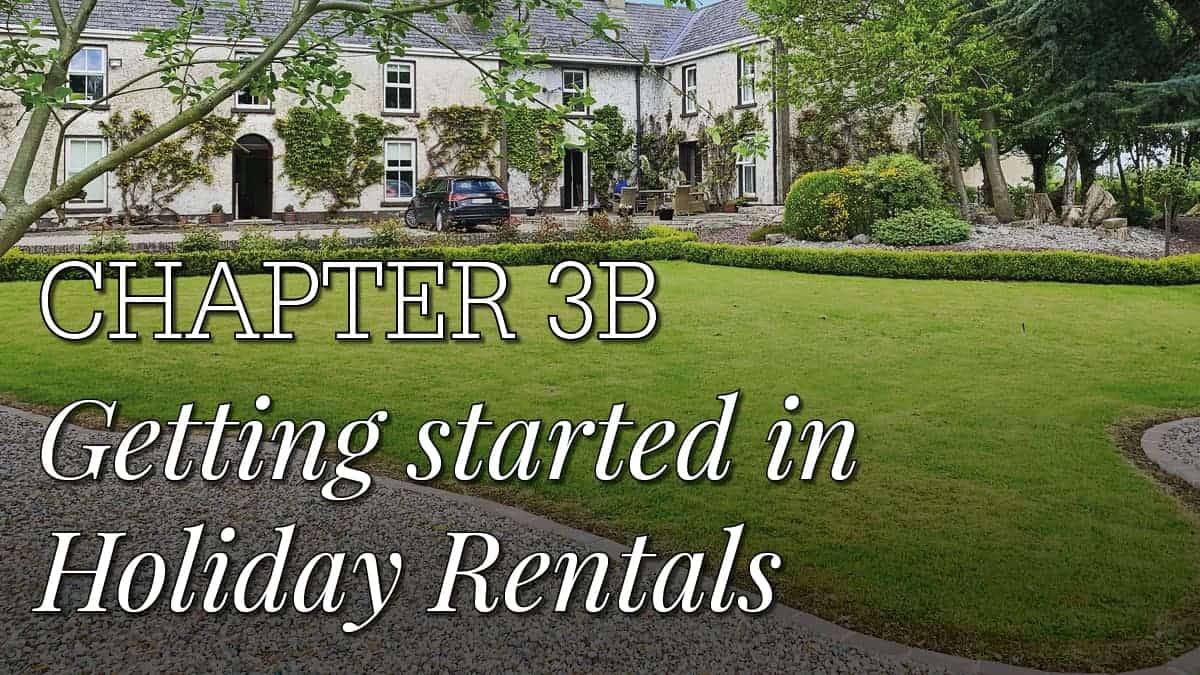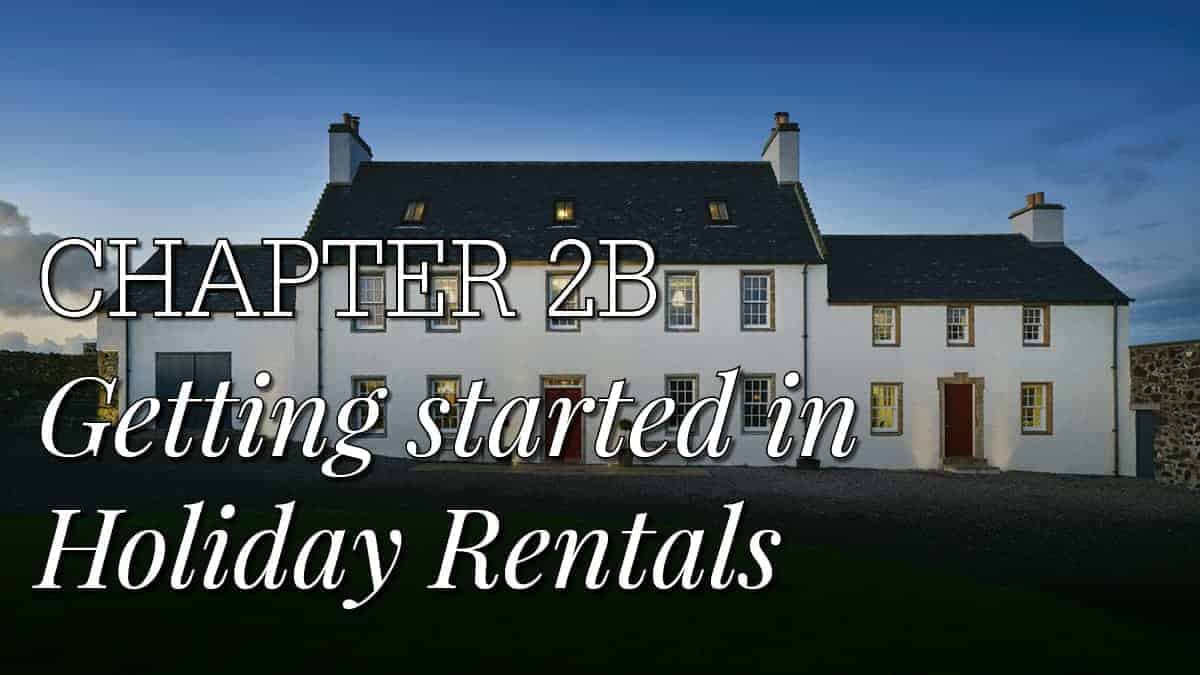
Chapter 3B will introduce you to the basic elements of interiors and technology for hospitality businesses, which will be very unique to your business, so there are no strict guidelines.
Interiors and Soft Furnishings
We’ve spoken about interior design in a number of our past features, so make sure you check them out for some handy top tips and inspiration directly from other hospitality business owners.
If you want to showcase individual pieces, try not to use items of sentimental value that can’t be easily replaced.
For other day-to-day items, make sure you have plenty of spares.
Buy quality if you can:
One of the easiest ways to give your property the luxurious feel is to provide good quality, soft furnishings such as upholstery, bedding and towels. You’ll need plenty of spares. The other advantage of buying quality is that it’ll last longer.
Patterns:
Plain items tend to be cheaper to replace, as well as easier to match up with other items. However, this doesn’t mean you CAN’T use patterns!
Extras:
Make sure there are extra pillows and towels in your guest rooms and maybe even a spare blanket. But don’t leave too many lying around or it might look cluttered. Make sure there are spares in storage in case guests have already used up their in-room spares. It’s a balance between providing a quality product and thinking of every eventuality with commercial needs.
Seasonal Soft Furnishings:
Think about how suitable your soft furnishings are for the different seasons. Should you swap to summer and winter products instead of year-round products? For example: Light, thin cotton blankets in Summer, and furry, heavier blankets and cushions in Winter. (This is a good opportunity to wash and check all bedding and give you time to find replacements)
Wear and tear on soft furnishings:
Think about which soft furnishings need to be washed most regularly because they will need replacing more often (e.g. towels will be washed after every use. Sofas won’t need cleaning as often). Make sure your turn-over team checks everything carefully each time. It might not be possible or necessary to check the back of a sofa every month but it’ll be needed every quarter and you need to keep a track of that. Beware the fake tan – it looks so-much worse on a white towel than it is. Make sure your change over staff have stain remover.
Technology
The modern holiday home, guest house, B&B or hotel needs good technology. From reliable WiFi to smart heating controls, make sure it works!
- Use brands your guests are most likely to know and be familiar with
- Consider anti-tech guests and how you can support them (e.g. bluetooth speakers AND an old fashioned FM radio)
- Keep the tech simple and leave a user guide
- If you want to use smart locks, consider what can happen if it goes wrong
- Privacy – Security cameras: Some guests may not feel comfortable with cameras right outside their door. Think about where you can place them in hallways without them being overly intrusive
- Privacy – Smart speakers: Some guests may be wary of smart speakers like Alexa and Google Nest. Leave a user guide about how to silence these gadgets or turn them off altogether.
- Under-promise and over-deliver. Be careful about what you market to your guests regarding technology. It’s great to have super fast and reliable WiFi, but it doesn’t sell a holiday. Be careful about what you promise – you don’t want to be called out to fix technical problems at inconvenient times.
- Leave spare batteries and bulbs (think about the quantity in the room – they’ll likely disappear!)
- Smart TVs are great and guests will appreciate access to Netflix or Amazon Prime, but consider legal and financial obligations. For example, your credit card will be linked to your Prime Video account and some guests may choose movies not included in Prime and before you know it, you’re paying for a different movie every night. You also need to consider guests using their own accounts may forget to log out, allowing future guests to rent movies on the previous guest’s card.
- Smart heating controlled from your phone may be useful in Winter months
- Smart plugs & systems like Nest are useful for turning appliances off automatically if guests leave them on
Renovations
If you are considering a renovation / refurbishment, remember to consider your level of accommodation and the type of guests you provide for.
Consider:
- Will you close your entire property for the duration of renovation, redecorating or refurbishment?
- Will you only close half the rooms and run at half occupancy whilst you get work done on the property?
- How often do you want to update your property, either interior or exterior?
- Do you need more regular touch ups?
During renovations take plenty of photographs of hidden areas to help with future maintenance. Remember: Everything in a holiday let gets used more, so it will deteriorate quicker than your own home.
For regular, on-going maintenance, keep a list of items you like so you know where you can find replacements that are exactly the same. Keep all user guides either for the guests or to order replacement parts.
If you need to repaint well used areas, keep a list of the RAL Codes (the unique paint identifier).
This will ensure you can always get your specific colour in future even if they stop selling the trade name.
Finance
- Will you pay a professional company to do it all for you?
- Can you save some money by doing odd jobs yourself, or by asking a family member or friend to help you?
- Are there any local tradesmen or suppliers you can support?
When updating, you could add features guests might find useful, for example:
- Drying room
- Dog washing area (E.g. outdoor hose with a hook to tie the dog to and sufficient drainage)
- Bike storage
Configuration
It can be hard to decide how big you want your business to be. Maybe the number of bedrooms you have available is dictated by the building you have. Or maybe you’re lucky enough to be building from scratch and able to decide, specifically, how many rooms you want.
You would have already researched the type of place you want to create from your target customer. Be it separate rooms / suites or individual family units, you now need to kit these rooms out.
Main Considerations:
- How many bedrooms do you want?
- How many people (maximum) per bedroom?
Personal feelings:
- How do you feel about having multiple groups of people in your B&B at once?
- Would you prefer to cater for just 2 guests at a time?
Bed options:
Think about your family or group bookings and what types of beds they will need.
- Do you want to offer single rooms with a single bed?
- If you want double beds, what size would you want? (Small Double / Double / King / Super King)
Family Rooms:
If you want to offer a family suite, how would you want this set up? Consider whether you need to reserve larger rooms for your family groups. You will then need to consider the set up of the beds:
- Permanent Double bed
- Permanent Single bed
- Single sofa bed
- Twin Singles that make a Double
- Movable cot (think about where you will store a travel cot)
Remember that the youngsters have shorter legs than us! Consider looking into the height of the beds that younger guests will be using.
Summary
This brings Chapter 3 to a close. Hopefully this has provided you with some helpful food for thought when deciding on how to run your business. We hope you gleaned some helpful tips and advice that you can use to your advantage should you cater for families, dog owners and guests with disabilities. We also hope you found the information regarding technology, furnishings and renovations helpful.
The next Chapter (4) will introduce you to booking and management operations, outlining what you may want to consider when looking at rental periods, T&Cs and the payment process and more.



